6. A Serious Man (2009)
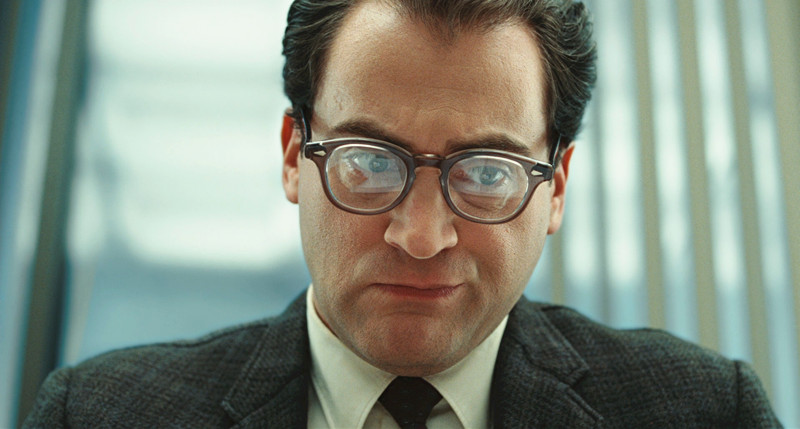
Wrapped in the same playful cynicism present in most of their work, the Coen Brothers went back to their Minnesotan roots to tell the story of Larry Gobnik, a Jewish college professor whose life turns upside down overnight. In a lengthy career full of razor-sharp comedies, one can dismiss the Coens’ quirky self-awareness as frivolous — when in truth their stories have always come with a healthy dose of existentialism.
In A Serious Man, they presented their own Kafkaesque retelling of the Book of Job through the miserable endeavors of Larry Gobnik, by any means an awfully average man. Larry’s wife promptly asks for a divorce — only to remarry his best friend — his defiant kids repeatedly ignore him, his jobless brother — who turns out to be a wanted felon — lives off his couch and one of his stubborn students blackmails him in order to get a better grade. Bogged down by the same misfortunes that keep befalling him, Larry — as a man of science — can’t seem to wrap his head around the cruel twists of fate, almost as if his case was one of divine intervention.
Ultimately, he resorts to religious counselling for answers, and up to three different Rabbis begrudgingly attend to him — all failing to provide any meaningful insight. Watching Larry navigate his tormenting life can be taxing — but also liberating in the sense that it puts into perspective the relative meaninglessness of our petty grievances.
7. Diary of a Country Priest (1951)
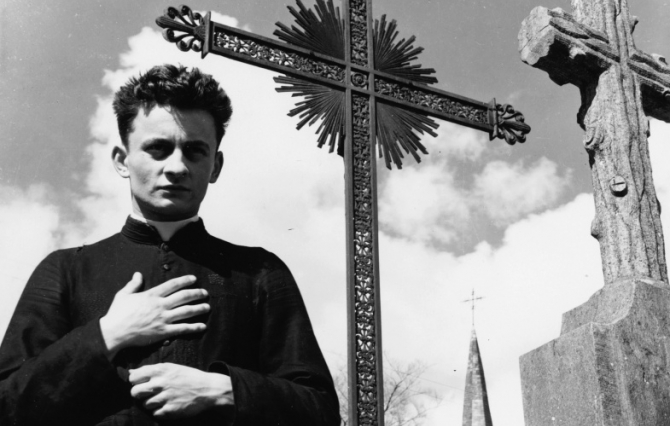
In this film, faith is seen through the eyes of a young, inexperienced priest recently dispatched to a small rural town in the north of France. As he settles in and gets acquainted with the locals, he garners a lot of attention — much of it unwarranted — as the hottest gossip item in town. Young people sneer at him, kids mock him, and adults spread rumors that paint him as a helpless alcoholic. On top of that, this young priest has to carry out all of his duties despite being crippled by a dangerously weakening health.
If anything, this Bresson movie visualizes faith as a heavy burden — one that subjects the priest to a life of servitude in solace, surrounded by nothing but constant hostility. One only has to gaze at his pale, undernourished face — towered by an emotionally-voided stare — to understand the overwhelming demands that come from his position.
But as a tragic figure, the priest exemplifies heroic fortitude — despite his frequent shortcomings and missteps. Loyal to Robert Bresson’s signature style, the film is told methodically with razor-sharp precision, whittling the story down to a level where only the essential narrative elements matter.
8. Silence (2016)
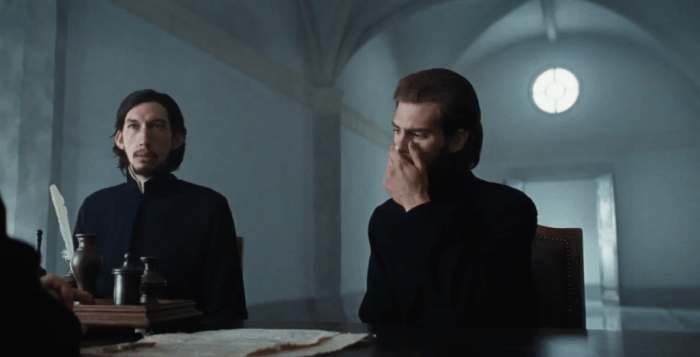
Martin Scorsese — someone who spent as much time as a kid in the seat of a theater than on his knees at the altar — has delved deep into religion in his career. Not only are his theological dramas like Last Temptation of Christ or Kundun bound together by themes of Catholic guilt — but also some of his underground crime tales like Mean Streets or Raging Bull too.
After being stuck in development hell for almost thirty years, Scorsese’s passion project finally saw the light of day — proving to be one of his most personal stories to date. Silence drops us in 17th century Japan, a country ruled with an iron fist by the Tokugawa shogunate — a military regime that put an end to centuries of political upheaval and outlawed Catholicism. Two Portuguese Jesuit priests set foot in foreign land to learn the whereabouts of a missing missionary feared to have committed apostasy.
God’s deafening silence — as we’ve seen in Winter Light, A Serious Man or First Reformed — can be the most daunting test to a believer’s faith. The unbearable uncertainty of God’s will puts Rodrigues — the main character of this film — at a crossroads. How much pain should a man endure before betraying his principles? Where should he draw the line when others’ suffering is involved? What would Jesus do?
Rodrigues is forced to confront this ethical dilemma after he’s captured by Japanese authorities and coerced into forgoing his religion and title — or else the suffering of countless of Catholic prisoners won’t cease. This prompts him to a contemplative meditation on the essence of selfless faith — even if it means outwardly forsaking God himself.
9. Breaking the Waves (1996)
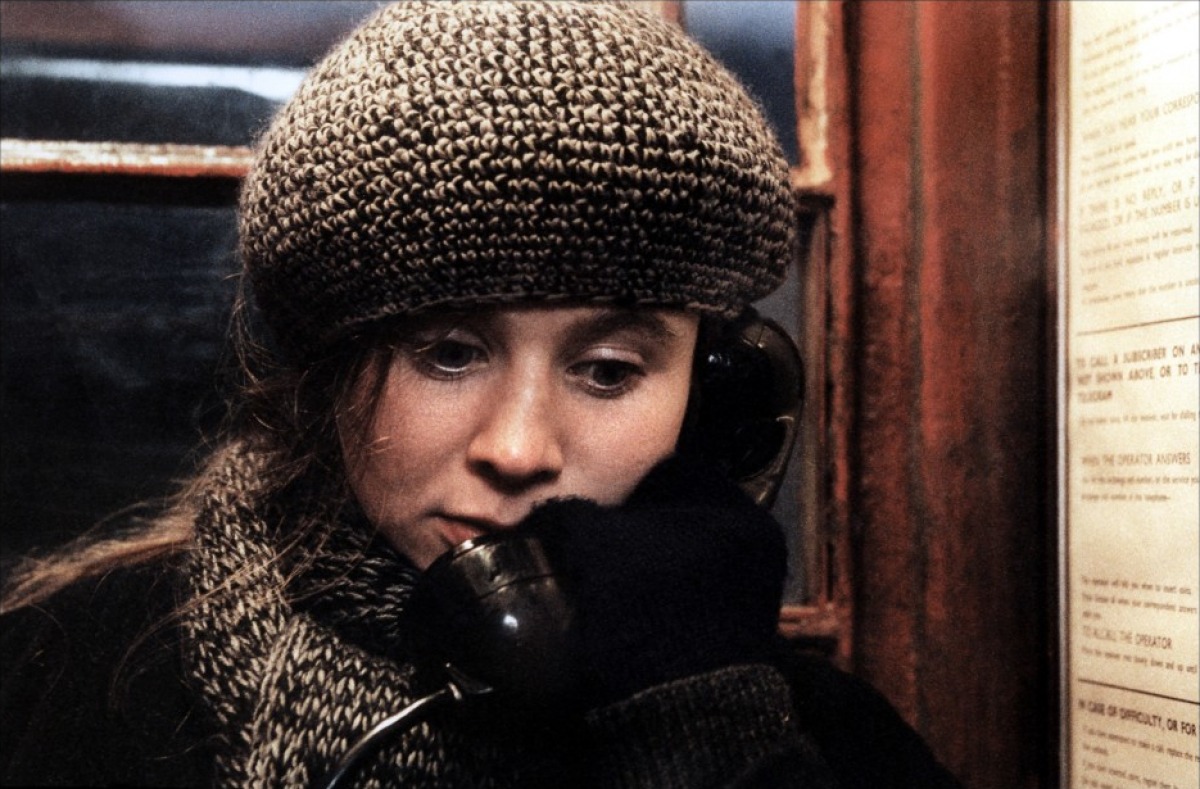
Opposed to most of the previous entries, faith is seen from a more ambivalent perspective in Breaking the Waves. Whereas in most cases belief is viewed as a virtuous value esteemed by peers and social circles, the main character from this hard-hitting drama by Lars Von Trier ends up being ostracized for hers. Far from being grounded in rationale, faith is closer to an infectious disease here — one hinging on confounded mysticism with no semblance of logic or coherence — ultimately doing nothing but harm to our protagonist.
The story follows Betty — a high-spirited young woman living in a devoted Puritan community on the coast of Scotland. Betty lives life in blissful innocence, a well-meaning woman that falls victim to her own naivety. As a newly-wedded wife to Jan, a charming oil rig worker, her life seems to go without fault — that is, until Jan suffers a work accident that paralyzes him indefinitely.
Almost as an emotional buffer to her recent trauma, Betty relies on her spiritual connection to God to guide her through it. This sends her into a downward spiral of self-deprecation, where she begins to offer herself sexually to random men — in her deluded belief that it will somehow help her husband recover from his critical condition.
Are we meant to pity Betty? She certainly comes off as one of the most sympathetic characters in the film. But Breaking the Waves can be seen two-way — one as a cautionary tale of blind fanaticism gone unchecked — and also as a study on unconditional love and unwavering resolve.
10. Ordet (1955)
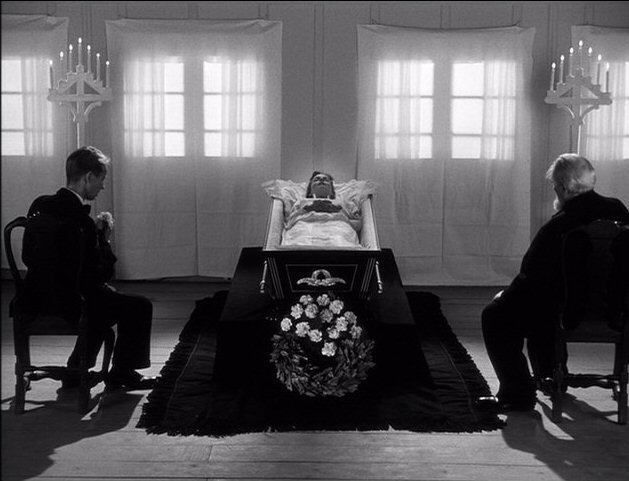
Bookending this list, we have a movie courtesy of Carl Dreyer, rightfully cited as the first great spiritual director — one that inspired the likes of Bergman, Tarkovsky and Von Trier — who made a career out of complex stories rooted in religious tribulations.
Ordet drops us in a dysfunctional household led by an old Christian farmer father to three sons. The eldest son is a declared Agnostic, the youngest one wants to marry a woman of another faith and the last one has gone into a delirious fit and believes himself to be Jesus Christ.
At first, the movie seems like playful banter between religious ideologies — but soon turns into a full-blown thesis about tolerance and faith. The stubborn patriarch feuds over doctrinal differences with the father of the bride-to-be — jeopardizing his own son’s marriage. “My religion embraces the warmth of life, yours the chill of death”, he tells him. But as a whole, their pettiness seems to be on even ground.
Characters make only perfunctory efforts to understand each other, standing on a perceived moral higher ground and betraying the same ideals they worship. Intolerance and selfish pride clouds and corrupts the human condition, posing as the biggest obstacle towards true enlightenment.
Ordet is a movie not too interested in choosing sides or making quick judgments of character, raising far more questions than it grants answers. Its biggest strength might be found in its moral ambiguity, where Dreyer leaves enough room for the audience to interpret and draw conclusions from the story.